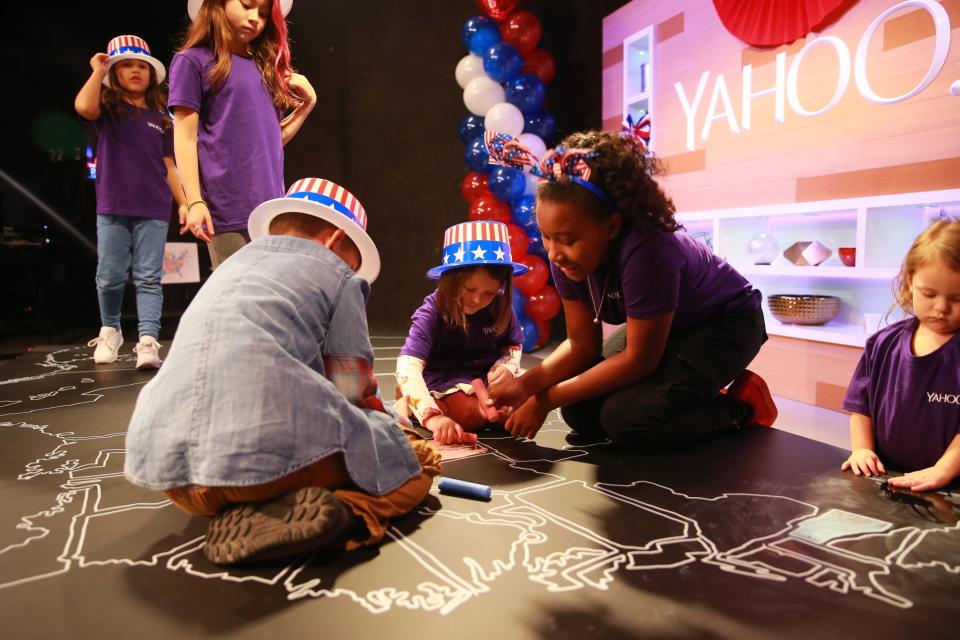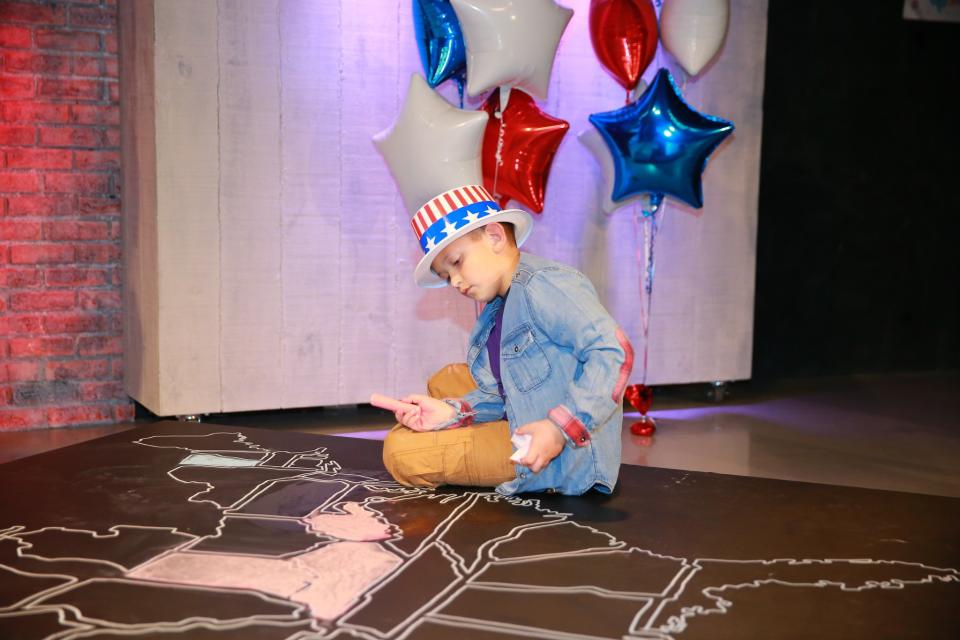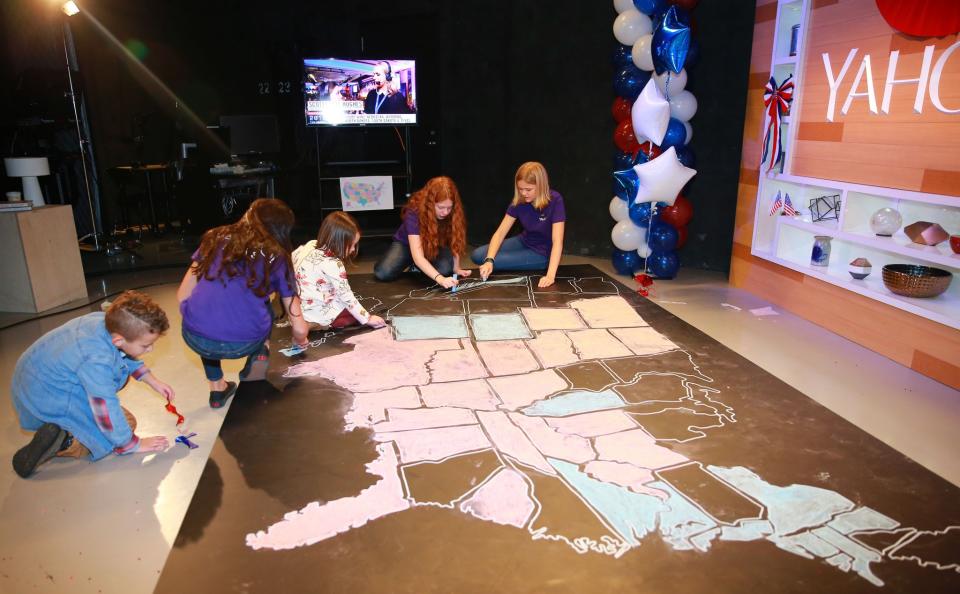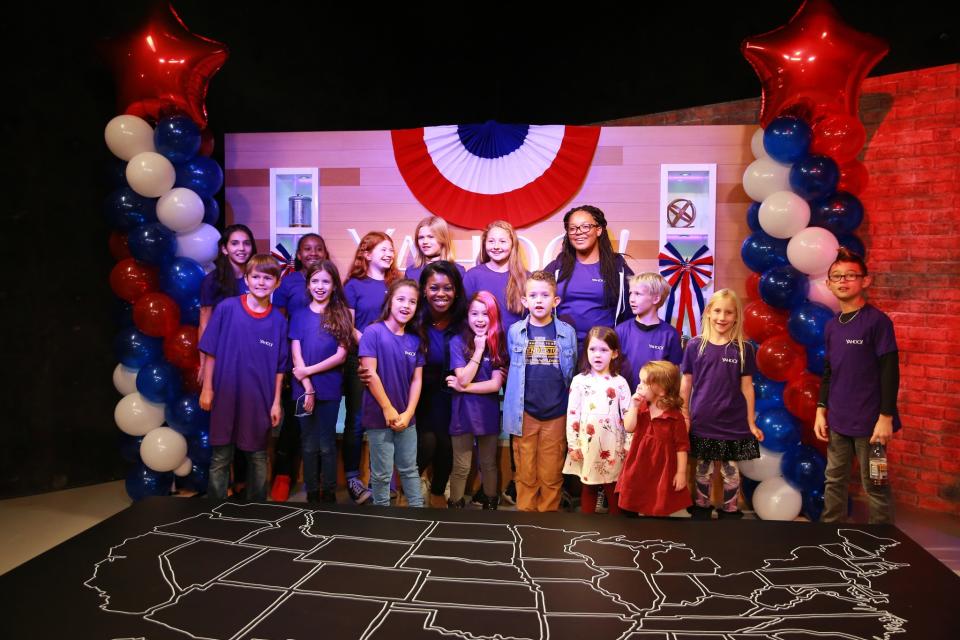The Trump Effect: Psychologists warn that children are watching
As Americans adjust to the reality of Donald Trump’s election victory, their reactions and behavior are being closely watched and studied — by the children in their lives.
Long before Election Day, experts speculated about the long-term ramifications that the tumultuous and unusually nasty campaign would have on children and adolescents.
“Language and rhetoric, unquestionably, have a really important effect on children,” says Dr. Barbara Greenberg, a clinical psychologist who specializes in adolescents, children, teens and families. “Observational learning — watching what other people do and say — is the most effective kind of learning.” Saturation coverage of this campaign, particularly hours and hours of Trump rallies, certainly offered ample opportunity for observational learning.

On election night, Yahoo News hosted the children of staff members and guests, asking them to color in a map of the United States in real time, as results came in and as Yahoo Global News Anchor Katie Couric led the team coverage of the race. The kids, ranging in age from 4 to 14, used red or blue chalk to color states, depending on the party of the candidate who won each state.
Early in the night, the children relaxed in the studio, listening to popular music and practicing breakdancing moves. They cheered and clamored for the blue chalk when New York and Illinois were called for Clinton at 9 p.m., but groaned when Texas, Kansas, Nebraska, North Dakota, South Dakota and Wyoming were called in favor of Trump.
“You can tell we all pretty much like Hillary Clinton,” one preteen girl said, but there were some Trump enthusiasts. One little girl joked, to a Hillary supporter, that she was afraid of getting cooties from her.
As the night progressed, the tone shifted from cautious optimism to anxiety. Even the youngest children in the group agreed that the campaign had been hard to watch and unusually negative. Several children expressed concern about hate speech and bullying, and worried about tense relations with world leaders under a President Trump. They all agreed that they would not speak to anyone in the tone the candidates used to each other throughout the campaign.

Children tend to espouse the views of the adult figures in their lives. This group of children — all connected to a Yahoo News employee in some way — represented a specific group of New Yorkers. Only two children in the group said they supported Trump, one explaining that he was following his father’s lead.
Although some teachers around the country have shied away from discussing the election in the classroom, others have initiated conversation on the subject and responded to their students’ questions. A survey conducted by the Southern Poverty Law Center found that this election cycle has resulted in what it calls the Trump Effect in U.S. schools: a widespread normalization of bullying and intimidation based on race and religion, among other factors.
Greenberg says that anxiety has been a frequent by-product of this election, even among children and adolescents. “This is an unusually contentious election, people are talking about it all over,” Greenberg notes. “I don’t think young kids are spared from hearing about this, either.”
Some children expressed concerns over Trump’s marginalization of people of color, his promise to build a wall between Mexico and the United States using “gold bricks” and his denial of the drought in California.
“This is a very destabilizing election, because kids are hearing the message that this country is really out of control,” Greenberg said. “When you hear that the country’s out of control and that candidates are labeled liars [and] that candidates are labeled bullies, that makes them scared, because everybody wants to feel like they’re living in a stable country.”

As the Republican victory became apparent Tuesday night, the morale of the children coloring the election map took a nosedive. “I support Hillary, so I’m not happy. I’m sad,” said Bella, the daughter of a Yahoo News employee. “Women’s rights are important to me.” She added that she had often watched the Access Hollywood tapes in which Trump bragged in vulgar language about his treatment of women, and that this made the results of the election especially upsetting to her.
This election cycle has amplified inflammatory speech on such sensitive issues as ethnicity, racism and gender inequality. For at least some students, Trump’s election has had the effect of validating the kind of language and behavior that has traditionally been considered inappropriate. “This is probably the most triggering election of all time,” Greenberg says.
Still, she thinks this could be instructive. “Long-term, I think this election will make children more aware and probably a little less trusting,” Greenberg says. “But if it has them focused more on elections and the importance of them, that’s a good thing.


